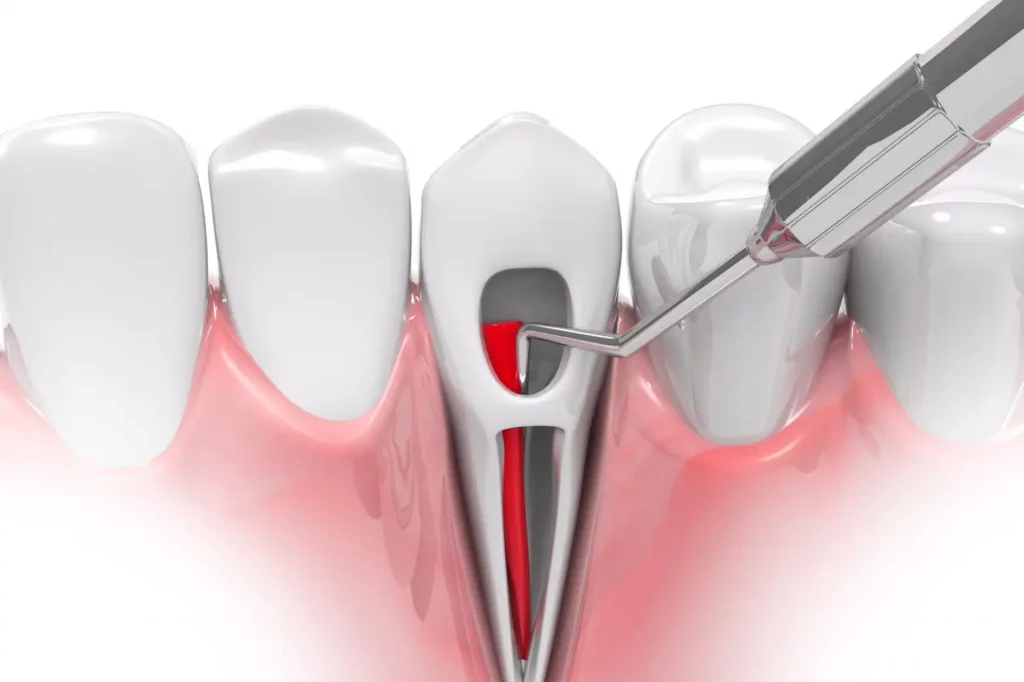Why are root canals necessary? Oftentimes, we’re asked if it’s just easier or better to remove a tooth than it is to get a root canal. But understanding the purpose of endodontic therapy (root canals) and the modern methods used to perform these treatments can help you feel more confident about your treatment decisions.
When are Root Canals Necessary?
Our Dumont dentist will typically prescribe endodontic therapy because of conditions like:
- Previous traumatic injuries, resulting in nerve death
- Deep areas of decay that have penetrated the tooth nerve
- Visible abscess at the root of the tooth
- Cracked tooth roots
- Severe pain or atypical hypersensitivity
Without a root canal, there would be no other way to restore these teeth.
If You Choose Not to Get a Root Canal
Sometimes there can be confusion about whether a root canal is truly necessary. When that happens, the individual may decide not to have their tooth treated, especially if they’re not in pain. Or maybe they want to know if they can have the tooth repaired with a crown or filling instead.
Root canals are the only treatment that addresses the nerve inside of teeth. If your nerve is dying or infected, it will cause your tooth to resorb (dissolve) from the inside. Not to mention potential pain or discomfort. But don’t let pain be the determining factor as to if a root canal is necessary. Sometimes badly abscessed teeth never hurt, simply because the nerve is no longer vital.
Without a root canal, the gradual deterioration of the tooth will eventually cause it to break apart or fall out entirely.
Preserving Natural Teeth is Always Best
Ultimately the reason why root canals are necessary is because they allow you to preserve your natural teeth. If your tooth is badly abscessed or dying, there may be an option to repair it instead of extracting it altogether. Although tooth removal may seem like the fast and logical choice, it isn’t always best.
When you extract a tooth instead of getting a root canal, it creates a void in your smile. In turn, the opposing teeth will start to super-erupt, looking for a biting partner. Additionally, the neighboring teeth will start to tilt or lean. This movement creates a chain reaction that will spread throughout your smile, eventually leading to irregular wear patterns, broken dental work, and even TMJ disorder.
If you choose to remove your tooth, you will want to replace it immediately. Such as with a fixed bridge or dental implant. But oftentimes the standard of care is to preserve the natural teeth you already have.
Pain Relief and Tooth Preservation
Root canals are necessary because they provide long-term pain relief and allow you to retain your tooth for several more years. Since toothaches from abscesses originate inside of the dental nerve, we can treat the pain at its source. It is not necessary to completely remove the entire tooth.
Today’s endodontic treatment is gentler and more efficient than ever. By removing the nerve and filling the hollow canal left behind, you can omit the source of chronic toothaches or recurring abscesses. And best of all, you can safely restore your natural smile.
After completing your root canal, we recommend placing a protective crown over your tooth. The crown will help protect the non-living tooth structure, reducing the risk of any chipping or premature wear from everyday use.
Want a Professional Opinion?
At Palisades Dental Care, our Dumont dentist will help you weigh the pros and cons of whether or not you should get a root canal or remove your tooth. When other applicable treatments are available, we’ll discuss those with you. That way you’ll be able to make an educated choice about your smile’s health.
If you have an abscessed tooth or want a second opinion about whether a root canal is necessary, contact Palisades Dental Care to request an exam.


